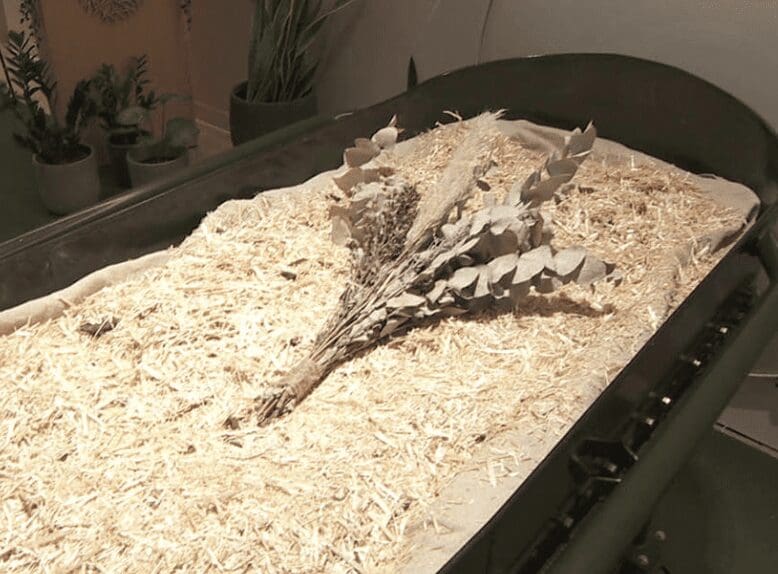

Natural, eco-friendly methods of burial have become more popular in recent years. (Photo by CBS News)
A law that would put Delaware in a class with seven other states offering a unique burial method passed the Senate Thursday.
House Bill 162, sponsored by Rep. Sean Lynn, D-Dover, opens the doors for cemeteries to begin offering increasingly-popular natural organic reduction after death.
Natural organic reduction is the gentle, respectful process that accelerates the decomposition of human remains to soil.
RELATED: Proposed law offers look at another ‘natural’ burial method
The process uses large vessels to hold human remains together with straw, wood chips, or other natural materials for about 30 days.
Human remains and organic materials, mixed together with warm air, are periodically turned and the process eventually results in reduction of the human remains to a soil material that can then be provided to the deceased individual’s family.
Natural organic reduction is considered a more eco-friendly cremation alternative, forgoing the usage of formaldehyde and the release of carbon dioxide and mercury into the atmosphere.
The process also uses 1/8 the energy of cremation.
In the seven other states where natural organic reduction is legal, studies have shown the soil turns out to be of high quality and is regenerative.
Those who have titanium hip or knee replacements, or something of the sort, would have those removed before the process.
“Imagine living an environmentally conscious and conscientious life, avoiding single-use plastic bottles, recycling what plastics and other materials you do utilize, composting table scraps and your fallen leaves, letting your lawn grow into a meadow, hanging your clothes to dry instead of using the machine, driving an electric vehicle a longer distances and riding a bike shorter distances,” said Sen. Laura Sturgeon, D-Hockessin. “You tried to do everything in life to reduce your carbon footprint. But then when you pass away, you have only two environmentally unfriendly options: burial and cremation.”
The vote was 14 “yes” and 7 “no.” The lone Republican that voted for the bill was Sen. Eric Buckson, R-Dover.
“I think I have a little bit more respect for the human body than to turn it into soil,” said Sen. Bryant Richardson, R-Seaford. “As far as turning my body into dirt, I just can’t, I can’t see this as something that I can support. I know that it can be an option for other people, but I just can’t support it.”
Sen. Stephanie Hansen, D-Middletown, took offense to that.
“It’s interesting to me how we have such a bias against soil and compost when that is the basis upon which our life depends on,” she said. “The quality of your soil grows the plants that we need, that the bugs need to eat in order to support the mammals that we eat, that the plants grow in and produce the oxygen that we need. The basis of all of that is soil – soil is foundational.”
In a light manner, Richardson said he wants to say for the record that he is not anti-soil, he is just anti-becoming-soil.
Sen. Dave Lawson, R- Marydel, said the bill doesn’t comport with his upbringing and his religion. He also said he doesn’t like the idea of his body being composted into a tomato.
Sen. Marie Pinkney, D-New Castle, responded by reading a Bible verse – Genesis 3:19.
“By the sweat of your brow you will eat your food until you return to the ground, since from it you were taken; for dust you are and to dust you will return.”
The bill heads to Gov. John Carney for signature to become law, making the First State the eighth in the nation to have legal natural organic reduction.
Share this Post



